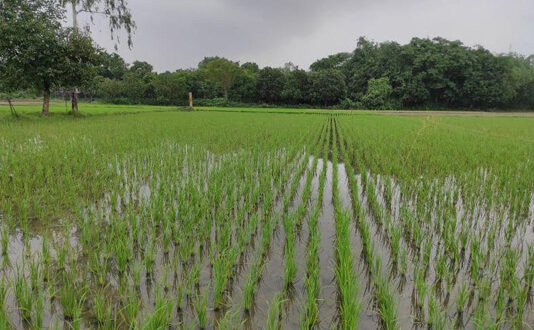GAIBANDHA, Sept 08, 2020 (BSS) – Harvest of this year’s T-Aush paddy more known as ‘Barshali Dhan’ has been completed in the district amid much festivity and enthusiasm .
Experts of the Department of Agriculture Extension (DAE) said after completing the harvest of Boro paddy the land was totally useless and remained fallow for three months and no crops were cultivated in the land until starting the T-Aman paddy cultivation.
The seedlings of Barshali Dhan were planted on the land just after harvesting the Boro paddy at Baishakh month, the farmers harvest it at the end of Bahdra and at the first week of Srabon, they also said.
A farmer in this region, could get three crops including T-Aman paddy, Boro paddy in a year easily and be economically benefited side by side with achieving food security for the family and the country
Like the previous years, the farmers of the district were motivated by the field level officials of DAE and cultivated Barshali Dhan on their land this year amidst much enthusiasm.
DAE office sources said a total of 14,325 hectares of land were brought under Barshali Dhan cultivation this year and at least 37,537 metric tons of rice have been produced through utilizing the unused land during the off season.
“There is in fact no variety in the name of Barshali Dhan as the varieties like BRRIDhan-42, 43, and BRRI Dhan 48 and indigenous variety parija paddy are cultivated in the rainy season, they are called Barshali Dhan ” said Lal Miah of Barobaldia village under Malibari Union of Sadar upazila who cultivated Barshali Dhan on two bighas of land this year .
He said farmers cultivate one of the varieties on their land between the middle of Boro and Aman period, they could easily get three types of crops in a year without any troubles of Boro and Aman paddy farming.
Deputy Director of DAE Krishibid Masudur Rahman said cultivation of Barshali Dhan had gained much popularity among the farmers of the district in recent years for getting desired production through utilizing the fallow land during the rainy season.
In reply to a query DD of DAE said actually there is no variety of Barshali Dhan, as it is produced and harvested during the Barsha (Rainy) season, the locals call it as Barshali Dhan.



